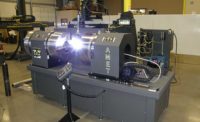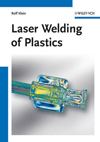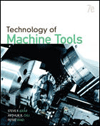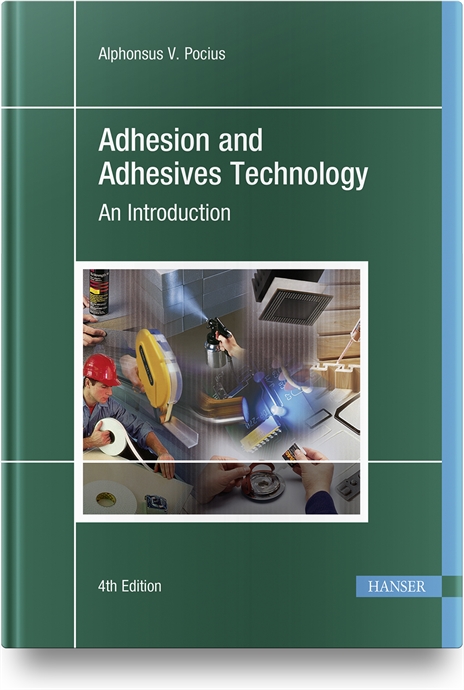New Laser Technology Creates Grease-Repellent Metal Surfaces

DRESDEN, Germany—The end of cleaning ovens, dishwashers, refrigerators and other appliances with chemicals or heat could soon be in sight, thanks to a new high-power laser system being developed to create self-cleaning, grease-repellent and antibacterial surfaces on sheet metal.
The new technology is the work of appliance manufacturer Bosch and the LAMPAS Coalition, a group of European laser and optics manufacturers that includes Trumpf and Next Scan Technology. (LAMPAS is an acronym for “laser structuring with multiscale periodic feature sizes for advanced surface functionalities.”)
The technology combines a high-power, ultrashort pulsed laser with a high-performance scanning head. The technology creates a textured surface on the surface of the metal. The treated metal features microscopic spikes or ridges that act like a bed of nails and stop dirt or liquids from adhering. The surface is similar in appearance to that of lotus leaves, enabling water and oil to simply roll off. Such surfaces also reduce the build-up of bacteria, meaning a surface never becomes dirty.
“The idea of using photonics or high-powered lasers to create tiny structures on metal is nothing new, but has always been too expensive to produce and too time-consuming,” says Andrés Fabian Lasagni, Ph.D., coordinator for the LAMPAS project and a professor of laser technology at the Technical University of Dresden.
“Our laser system will allow us to treat more than 1 square meter of sheet metal per minute, covering a potentially growing market that could reach nine-digit revenues per year in the home-appliance sector alone,” he continues. “With our innovative direct laser interference patterning scanner head, we will be able to treat metal with a 1.5-kilowatt picosecond laser with scanning speeds of more than over 100 meters per second.”
The treatment will make metal surfaces resistant to fingerprints. “If we use this metal on the outside of a refrigerator, an oven or kitchen surface, the user would not have to clean finger or hand marks so often. Your fridge would always stays shiny,” he says.
The technology could play a role in more than just home appliances. It could also be a boon for creating sterile surfaces for medical equipment in hospitals; packaging machines in the pharmaceutical industry; and machines in the food processing sector.
Although this work is currently being carried out on metal, the surface treatment technique works with other materials, such as plastic and glass, as well. The treatment is also safer and more environmentally friendly than treating the surface with nonstick coatings, such as Teflon.Looking for a reprint of this article?
From high-res PDFs to custom plaques, order your copy today!








